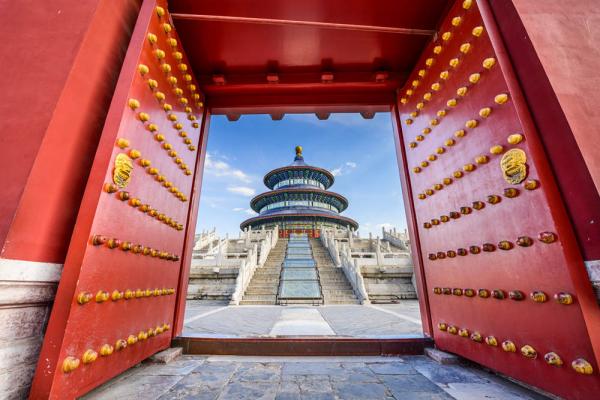1. Research Before you goTip Know the things each region offers. Suzhou for instance, is renowned for its silk, Jingdezhen, for its porcelain, and Tibet for its thangkas.
Pro: This tool helps you concentrate on your shopping goals, and decreases the amount of time wasted.
Con: You must be familiar with the highlights of the region.
2. Shop Locally to Guarantee Genuineness
To guarantee authenticity, buy directly from the source to ensure the quality of your products.
Pro: Lowers the risk of copyright goods, and supports local artisans.
Cons: Getting away from tourist areas or rural regions is possible.
3. Take a look at the workshops or artists.
Find small shops and artisan hubs rather than generic stores.
Pro: It allows you to know more about the art and also buy directly from artists.
Pro: Products made by hand may be costly and hard to negotiate.
4. Understanding Cultural Significance
Discover the history of items such as cloisonne or jade carvings.
Pro: Helps you appreciate the product and give them a deeper meaning.
Pro: It may require some time to grasp all the cultural nuances.
5. Be sure to check the quality by taking care.
You can determine the quality of items by looking them up like ceramics, tea, embroidery, or tea.
Pro: Prevents disappointment by ensuring that you get what you spend for.
Cons: Some expertise is required to identify quality products.
6. Beware of products that are mass-produced
Pick unique items that are hand-crafted instead of mass-produced copies.
Pro: You'll be able to take home an incredibly precious and special souvenir.
Con: The cost of authentic craftsmanship may be costly and difficult to find.
7. Compare Prices
Shop around to find the best prices for an item.
Pro: It assists you to identify reasonable rates and prevents you from being overcharged.
Con: Time consuming particularly for markets with large sizes.
8. Purchase Tea from a reputable vendor
Tip For areas such as Hangzhou or Fujian you can go to trusted Tea Houses in Longjing or Tieguanyin.
Pro: Ensures authentic and high-quality.
Con: Quality tea is expensive and can be hard to confirm for newcomers.
9. Learn more about Local Customs
Tips: Some sellers might want to encourage or even require you to bargain.
Pro: Adds an enjoyable cultural aspect to shopping.
Con: Not understanding how customs work can lead to awkward interactions.
10. Pack Carefully
Be prepared for the transportation of bulky and fragile items like silk, ceramics, or other regional specialties.
Pros: Your purchase will arrive intact and undamaged.
Con: Additional logistical problems and shipping cost.
The benefits of shopping for Regional Specialties
Unique Souvenirs. These aren't products anywhere else.
Cultural Immersion. By buying local specialties it is possible to get to know the region's history and craftsmanship.
Direct purchases made through artisans help local economies.
The disadvantages of shopping locally for specialties
Authenticity: Risk of purchasing counterfeits or lower quality versions.
Problems with logistics: Transporting large or fragile items can be a challenge.
Locally-sourced products are typically expensive, particularly handcrafted items.
These tips will allow you to make memorable purchases during your visit to China. Take a look at the top rated explore this amazing destination for website info including splendid china tour.html, shopping in suzhou, shopping in xi an, mount li a royal garden since the zhou dynasty, the master of nets garden the hall of ten thousand books, anren ancient town, splendid china tour.html, chinese wood carving originated in neolithic period, tips for identifying copyright, shanghais winter wonderland festivals lights and fun and more.

Top 10 Tips On Respect For Culture When Visiting Temples That Are Famous In China
1. Use the proper manners for temples - Every temple has their specific rules. Always follow the local customs, be it bowing, offering a sacrificial incense, or simply observing silence during rituals.
Pro: Represents respect for temples and the religious rituals.
Con: Can be overwhelming if you're unfamiliar with temple practices or etiquette.
2. Dress sensually
Dress conservatively and cover your arms, shoulders, and legs. Some temples may provide shawls or scarves for visitors who need to protect themselves.
Pro: Shows respect for sacred spaces and avoids offending locals.
Con: It can be uncomfortable in hot weather, requiring additional clothing and preparation.
3. Calmly and firmly remain silent
Tip: Keep your calm and serene attitude at prayer halls. Use a soft voice and stay clear of loud conversations.
Pro: It maintains the sanctity the space, and honors worshippers.
Con: Silence can seem awkward or uncomfortable in bustling tourist destinations.
4. Avoid Disrupting Worshippers
Tips: Don't interrupt people who are praying or meditating. Let them finish their prayers or meditations.
Pro: Shows consideration for the spiritual practices of other people.
Con: It's tempting to interact with the worshipers However, you must be careful to avoid being distracted.
5. Don't touch sacred objects
Do not touch altars, statues or other sacred objects unless you are explicitly permitted to do so. These items are often considered very sacred.
Pro: Respects culture and the sacredness of the temple.
Con: It's tempting to purchase items to use for photography or to satisfy your curiosity.
6. Respect the Elders
Tip For temples: In many places, people who are older have the position of respect. Be extra polite when you meet them.
Pro: Recognizes the importance of respecting elders.
Cons: It can feel strange if you are from a society that doesn't value age.
7. Follow the lead of locals
Tip : If you don't know how to behave in a specific circumstance, try following the locals' model.
Pro: You'll be able to blend in easily and make sure that you're following the right procedures, without making errors.
Cons: It may take some time to observe in order to comprehend what's happening.
8. You must ask permission prior to photographing
Always seek permission prior to making photos, especially if you are in an area where there is a prayer or photography is restricted. Some temples may prohibit photography entirely.
Pro: Demonstrates respect for privacy and the sacredness of space.
Cons: It is possible to overlook photo opportunities, especially in visually stunning areas.
9. Make Offerings Humble and Respectful
Tip: If you wish to present an offering (flowers or incense, fruit, etc.), keep it simple and modest. Don't give extravagant gifts unless necessary for special occasions.
Pro: It aligns with local customs and avoids any kind of imbalance or discord.
Con: You may feel uncertain about what to offer without local guidance.
10. Be aware of your behavior and Language
Tip: Keep your manner mindful and calm at all instances. Avoid inappropriate language and joking around sacred sites.
Pro: It can help create a peaceful and respectful environment between all visitors and believers.
Con: It's essential to maintain composure even when you feel like joking around or just taking a more relaxed approach.
Chinese temples: Benefits and Pros and
It is possible to build relationships with locals by showing them respect.
A deeper understanding of culture: This shows a willingness to fully immerse yourself in Chinese tradition and understand the significance of it.
The temple culture is an enriching and enjoyable experience if it's honored.
Avoiding Mistakes : Adhering to the customs of your culture will allow you to avoid disrespecting sacred places or individuals. This will make for you have a better experience.
Increased spiritual sensitivity: Respect increases your awareness of the spiritual practices and traditions of the region. This will provide you with a a stronger sense of connection.
Cons of Cultural Respect in Chinese Temples
Cultural Misunderstandings: Without prior understanding, you could make a mistake, or not understand temple rituals and cause discomfort.
Physical discomfort: Dressing modestly in hot weather or adhering to rules can lead to temporary discomfort.
You may feel limited in your freedom if you have to adhere to strict rules (e.g. no talking or photography).
It is time-consuming: Temple rituals and customs can consume a lot of time. This can impact the overall plan of your trip.
Language Barriers might be difficult to get permission or understand certain rituals when a language barrier is in place.
By following these suggestions and showing cultural respect, you'll not only have a more rewarding and fulfilling experience in China's famous temples, you'll aid in preserving the sacredness and values of these sacred sites. Check out the best experience the beauty of this spot for blog examples including chinese kites a phoenix shaped kite, honey lake country club, naked marriage in china the most fashionable wedding style for the 1980s, shopping in shangri la, mount li a royal garden since the zhou dynasty, chinese kites a phoenix shaped kite, four gentlemen in chinese culture, zhangjiajie tour maps, eating in taiyuan, jinan transportation and more.
